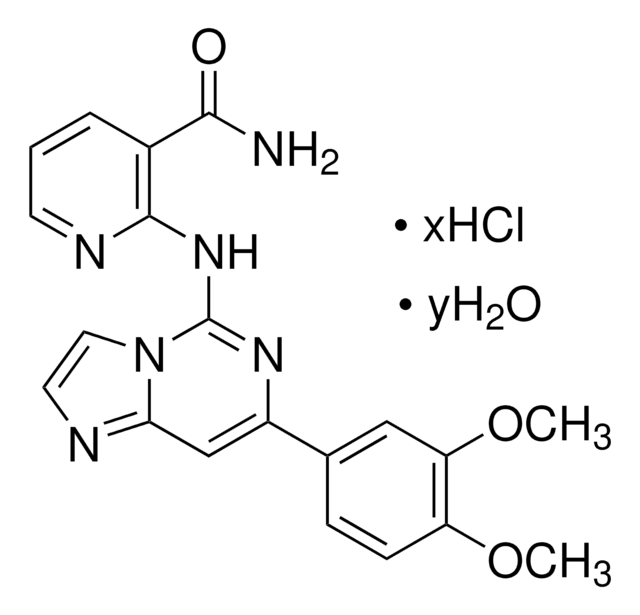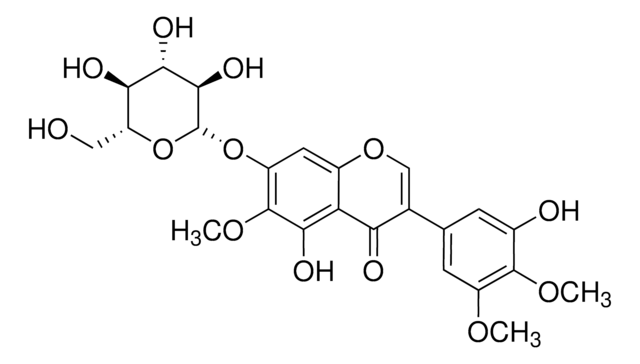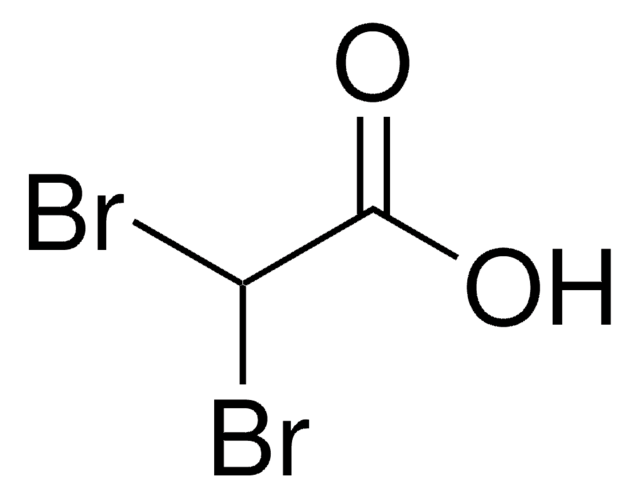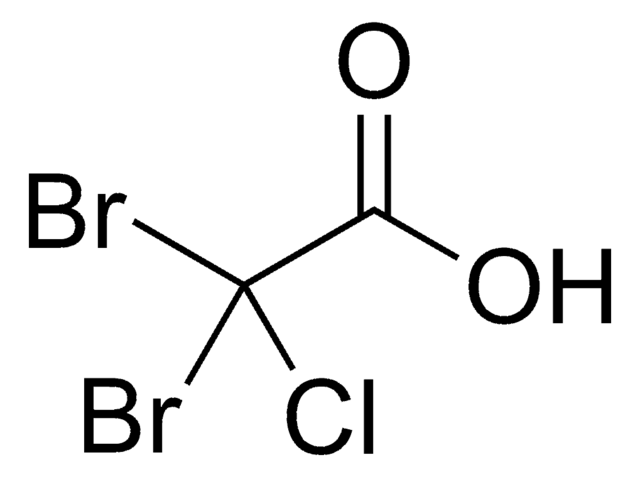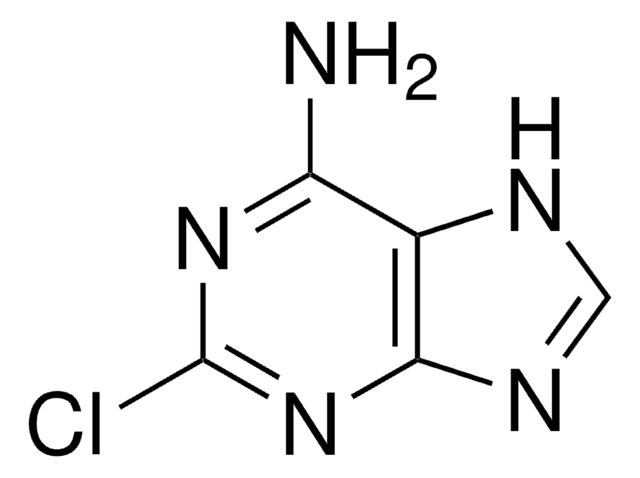574711
Syk Inhibitor
The Spleen Tyrosine Kinase Inhibitor, also referenced under CAS 622387-85-3, controls the biological activity of Spleen Tyrosine Kinase. This small molecule/inhibitor is primarily used for Phosphorylation & Dephosphorylation applications.
Sinónimos:
Syk Inhibitor, Spleen Tyrosine Kinase Inhibitor, 3-(1-Methyl-1H-indol-3-yl-methylene)-2-oxo-2,3-dihydro-1H-indole-5-sulfonamide
About This Item
Productos recomendados
Quality Level
assay
≥97% (sum of two isomers, HPLC)
form
solid
potency
14 nM IC50
manufacturer/tradename
Calbiochem®
storage condition
OK to freeze
protect from light
color
deep orange
solubility
DMSO: 5 mg/mL
shipped in
ambient
storage temp.
2-8°C
SMILES string
[S](=O)(=O)(N)c1cc2c(cc1)NC(=O)C2=Cc3c4c([n](c3)C)cccc4
InChI
1S/C18H15N3O3S/c1-21-10-11(13-4-2-3-5-17(13)21)8-15-14-9-12(25(19,23)24)6-7-16(14)20-18(15)22/h2-10H,1H3,(H,20,22)(H2,19,23,24)
InChI key
MLKHXLFEYOOYEY-UHFFFAOYSA-N
General description
Biochem/physiol Actions
Packaging
Warning
Other Notes
Legal Information
Storage Class
11 - Combustible Solids
wgk_germany
WGK 1
flash_point_f
Not applicable
flash_point_c
Not applicable
Certificados de análisis (COA)
Busque Certificados de análisis (COA) introduciendo el número de lote del producto. Los números de lote se encuentran en la etiqueta del producto después de las palabras «Lot» o «Batch»
¿Ya tiene este producto?
Encuentre la documentación para los productos que ha comprado recientemente en la Biblioteca de documentos.
Nuestro equipo de científicos tiene experiencia en todas las áreas de investigación: Ciencias de la vida, Ciencia de los materiales, Síntesis química, Cromatografía, Analítica y muchas otras.
Póngase en contacto con el Servicio técnico